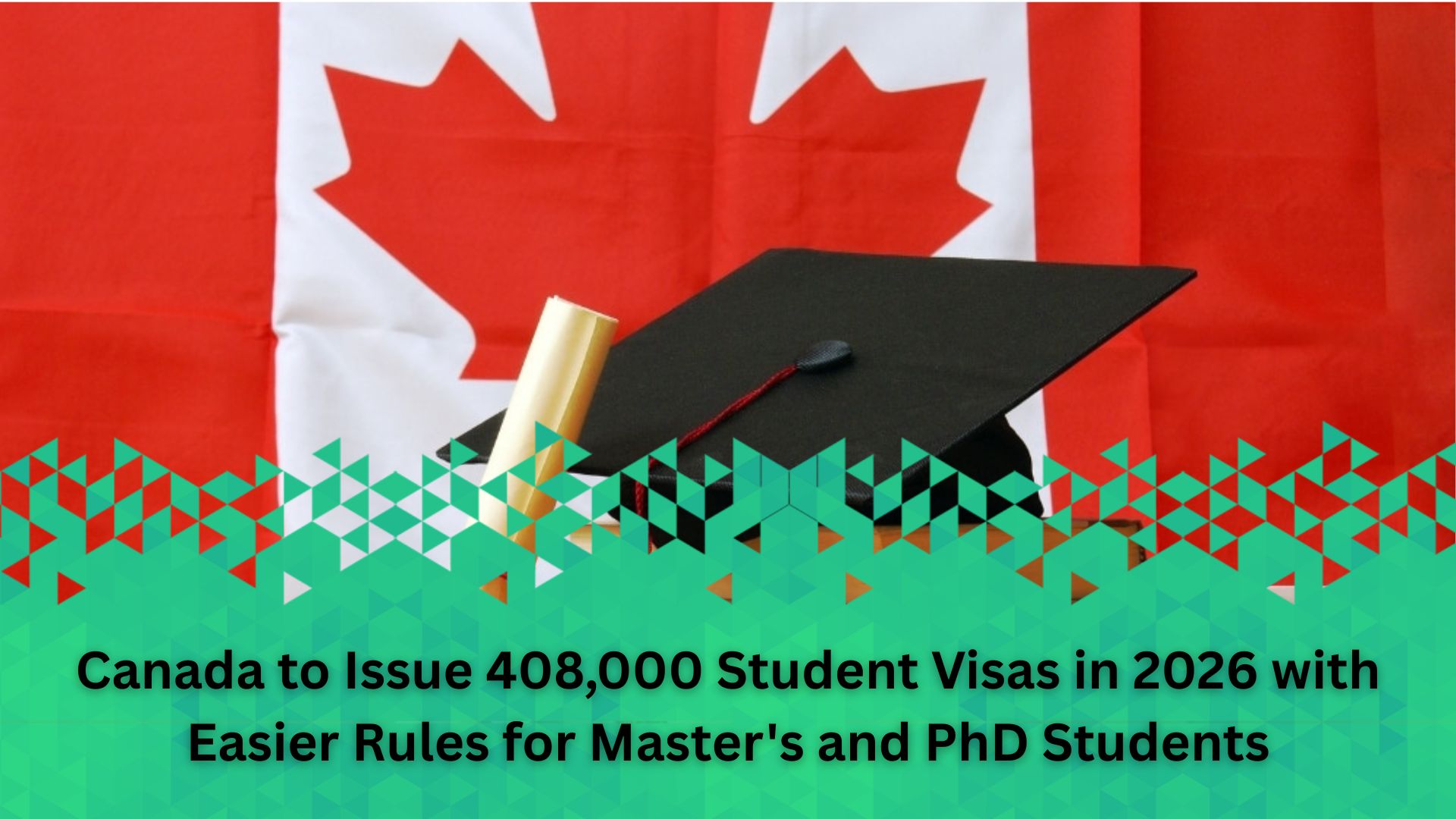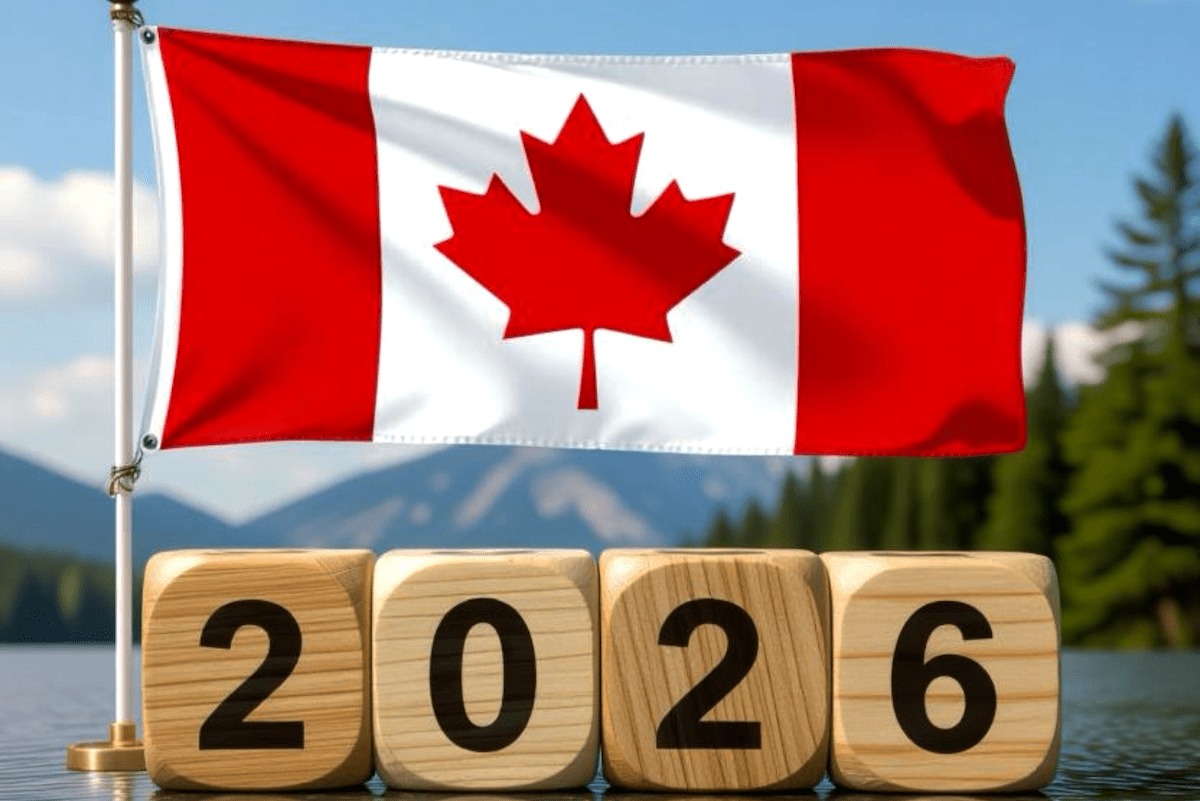
Canada to Issue 408,000 Student Visas in 2026 with Easier Rules for Master's and PhD Students
The Canadian government has confirmed its plan to issue 408,000 study permits in 2026 . This figure, representing a 7% decrease from the 2025 target and a 16% reduction from 2024, is part of a broader national strategy to bring the share of temporary residents in Canada’s population below 5% by the end of 202.
The announcement, detailed by Immigration, Refugees and Citizenship Canada (IRCC) , outlines a dual-track approach: a controlled intake of new international students and a streamlined process for current ones, alongside a major exemption for graduate-level scholars.
Breaking Down the 2026 Study Permit Targets
The total of 408,000 study permits is divided into two key categories:
-
155,000 new permits for incoming international students.
-
253,000 extensions for current or returning students seeking to continue their studies.
This structured allocation reflects a deliberate shift from the previous years of rapid growth. The government aims to align the International Student Program more closely with national priorities, including housing availability and the sustainability of educational institutions and local communities.
“These measures are designed to ensure that Canada continues to welcome international students in a way that is sustainable and manageable for our communities,” an IRCC official stated.
A Major Shift: PAL/TAL Exemption for Graduate Students
A cornerstone of the new 2026 policy is the exemption of master’s and doctoral students from the Provincial or Territorial Attestation Letter (PAL/TAL) requirement, effective January 1st, 2026 . This letter, currently mandatory for most study permit applicants, is a document from a province or territory confirming that the student’s application counts against its allocated cap.
The exemption recognizes the critical role that graduate-level research plays in driving innovation and contributing to Canada’s long-term economic and intellectual development. By removing this administrative hurdle, Canada seeks to attract and retain top-tier academic talent.
The groups eligible for this exemption include:
-
Master’s and doctoral students applying to publicly funded Designated Learning Institutions (DLIs).
-
Primary and secondary school students.
-
Other visiting or exchange students.
-
Members of government-priority groups and vulnerable populations.
-
Current study permit holders applying to renew their permit at the same DLI and for the same educational level.
It is estimated that approximately 49,000 graduate students will benefit from this new exemption in 2026, facilitating a smoother application process for those pursuing advanced degrees.
Provincial Allocations for PAL/TAL Required Permits
While graduate students are exempt, a significant portion of new applicants will still require a PAL. The federal government has allocated a total of 180,000 study permits for 2026 that are subject to the provincial attestation requirement. The distribution across provinces and territories, based on factors such as population, existing student density, and historical approval rates, is as follows:
| Province | Study Visa Quotas 2026 (PAL/TAL Required) |
|---|---|
| Ontario | 70,074 |
| Quebec | 39,474 |
| British Columbia | 24,786 |
| Alberta | 21,582 |
| Manitoba | 6,534 |
| Nova Scotia | 4,680 |
| Saskatchewan | 5,436 |
| New Brunswick | 3,726 |
| Newfoundland and Labrador | 2,358 |
| Prince Edward Island | 774 |
| Yukon | 198 |
| Northwest Territories | 198 |
| Nunavut | 180 |
| Total | 180,000 |
As illustrated, Ontario and Quebec, home to the largest number of post-secondary institutions and existing international student populations, have received the highest allocations. Smaller provinces and the territories have correspondingly smaller quotas.

What the 2026 Study Permit Changes Mean for Prospective Students
The combined effect of a reduced overall cap and the new graduate student exemption creates a more complex and competitive landscape for those hoping to study in Canada.
-
Increased Competition: With fewer new permits available (155,000), competition for spots, particularly at the undergraduate and college levels in popular provinces like Ontario and British Columbia, is expected to intensify. Students will need to present strong academic credentials and complete applications.
-
Strategic Application Planning: The PAL/TAL exemption for master's and PhD programs may make these pathways more attractive. Prospective students should carefully consider their program level and institution type. Applying to a publicly funded DLI for a graduate program could offer a significant administrative advantage.
-
Early Application is Crucial: Given the provincial caps, students requiring a PAL should initiate the process as early as possible. They must first secure a letter from their chosen province or territory before submitting their study permit application to IRCC. Delays could result in the provincial cap being filled.
-
Verify Designation and Eligibility: It is more important than ever for students to confirm that their chosen institution is a Designated Learning Institution (DLI) and that their program of study is eligible. The PAL/TAL requirement does not change the need for a letter of acceptance from a DLI.
A Balanced Approach for Canada's Future
The 2026 study permit strategy signals a maturation of Canada's International Student Program. By implementing targeted reductions and creating exemptions for high-value graduate students, the government is attempting to balance the immense benefits of international education, cultural diversity, economic contribution, and talent pipeline with the very real pressures on housing, healthcare, and infrastructure.
Prospective international students for the 2026 intake are advised to stay informed through the official IRCC website and to begin their preparations well in advance to navigate this new, more selective environment successfully.












